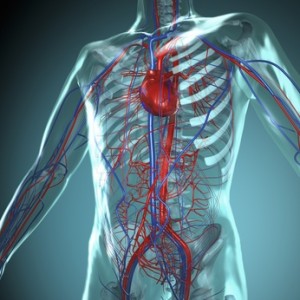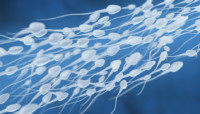Contents
What is carnitine?
Carnitine is synthesised from the amino acids lysine and methionine, and it performs essential functions in human metabolism. The naturally occurring protein compound does this by acting as a receptor molecule for different fatty acids. It therefore contributes towards providing an effective supply of nutrients and energy generation in the body.
Carnitine is particularly important for the transport of fatty acids. The body can only transport long-chain fatty acids into the mitochondria with the help of carnitine. The mitochondria generate energy in the cells of the body. Therefore this compound is particularly famous as a fat burner.
Summary
Most important properties:
- Acts as a transport molecule for fatty acids
- Can improve the process of burning fat, and it can help you lose weight
- Can improve energy release (which is important in order to meet cognitive performance requirements)
- Supports recovery after sports
- There is some evidence to suggest that it can improve erectile function and sperm production (however, the results of studies on arginine are more convincing).
L-carnitine occurs mainly in red meat (beef, lamb), and in small amounts in white meat (chicken, turkey).
Only very small quantities are present in vegetarian foods. Vegetarians and vegans thus usually have very low carnitine levels.
It is most sensible as a food supplement for people who are mentally and physically very active, on a diet or vegetarians.
- 300 mg – 500 mg when normally fatigued
- 750 mg – 2,000 mg during fat loss
- 1,500 mg – 3,000 mg to improve erections
Online pharmacies may distribute very low quality carnitine supplements. These have previously caused health complications in customers. Therefore if you are using supplements, you need to ensure you purchase good quality products from reputable retailers.
Carnitine products should ideally contain pharmaceutical grade Carnipure®.
Combine carnitine with other vitamins, coenzyme Q10 and minerals to increase the effect.
Products which include Carnipure® and are sold by pharmacies are ideal because they are good quality products.
How does it work?
On average the body contains 20-25g of carnitine. The body mostly stores this in heart and skeletal muscles. These muscles are characterised by their intensive metabolism of fatty acids, and they are therefore particularly dependent on proteins.
One of the most important properties of carnitine is its ability to exist redundantly in the human body, without causing significant adverse effects in most people. The body converts it into urea, and then excretes it in urine without causing health problems.
In contrast to this, there are some diseases such as Crohn’s disease, where an additional supply of the nutrient is very important in the management of the condition. This additional need for the nutrient can be met using supplements.
The physiological process of how L-carnitine works in the body to transport fatty acids into the mitochondria for energy generation is illustrated in this excellent video (from 1:20).
[tube]enJCfbitNtA[/tube]
Dietary sources
The body can synthesise carnitine. However different vitamins and iron must also be present in adequate quantities for this to occur. If this is not the case, the production continuously slows down until it finally becomes essential that the nutrient is supplied through particular foods. Also generally, people need to supplement their body’s own supply of carnitine with foods rich in this substance.
The human body mostly receives its supply of this substance from red meat, but other meats are also good sources. Because of this, in a mixed diet the body receives around 100 to 300 mg per day.
Conversely fruit, vegetables and meat from poultry contain little or no L-carnitine. Therefore, people following a vegetarian or vegan diet receive only approximately 3 – 20% of the level received through a mixed diet, which is inadequate 1.
One vegetarian food which is reasonably rich in carnitine is mushrooms (approximately 15 mg per 100g). Other foods include cheese (approximately 0.6 to 12.7 mg per 100g) and dairy products (approximately 2 to 10 mg per 100g).
However, it must also be taken into account that only 54 to 87% of food consumed contains L-carnitine that is available for the body to use and which can be recycled.
Furthermore, the high solubility of this compound in water can have a negative effect on the contents of certain food products after cooking. This is because after prolonged contact with water, a leaching effect can occur and the quantities present can become considerably reduced.
Functions of carnitine
Carnitine fulfils essential functions in the body as a vitamin-like substance and it is important in a variety of processes. For example, it supports the kidneys and liver in their role in detoxifying substances and eliminating these toxins. It also enables the burning of long-chain fatty acids in order to release energy.
This is important for a range of muscle cells in the human body, especially those in the heart. Furthermore in all the sites where this is possible, this substance fulfils its function as a so-called ‘bio carrier’. It directs fatty acids to the site of energy production inside the membrane of the mitochondria.
Immune system
With the help of lymphocytes, pathogens are rendered harmless. Carnitine stimulates this crucial process. Therefore it strengthens the immune system and supports the body to fight off illnesses more easily.
Furthermore, the nutrient can increase the activity of phagocytic cells and killer cells. It can also act as an effective antioxidant. In this context, it inhibits the destruction of cells and tissues due to free radicals.
As a consequence it protects membranes and nerve cells in particular. For this reason, to some extent L-carnitine can also protect against degenerative neurological diseases such as Alzheimer’s and Parkinson’s disease. This is because they are associated with the increasing degradation of neurones.
Diabetes
In most cases patients with diabetes struggle with heightened oxidative stress. Scientists have found that carnitine can reduce these high levels.
Because of this possible link, scientists conducted a study in 2008 to further investigate this relationship. They examined the effects of supplements containing carnitine in over 80 subjects. The investigation showed that the supplements could reduce the concentration of both LDL cholesterol and triglycerides, and could therefore decrease the level of oxidative stress2.
Fat burning
L-carnitine is essential for burning lipids, or fats. The body also uses it in the process of supplying energy to muscles. Therefore, it can contribute towards targeted fat reduction within the framework of dietary measures.
Additionally, this substance increases the development of muscle mass with suitable supplementation. It can also reduce the recovery time after physical exertion and it promotes a positive state of mind. Furthermore, it can reduce fatigue in older people, and lead to increased vitality and energy. 3.
Heart disease
It is important not to underestimate the effect of carnitine on heart disease. It generates approximately 70% of the energy required by the heart. For this reason, the vitamin-like substance supports heart function for existing limitations such as angina or coronary sclerosis, and can consequently protect against possible exacerbations or heart attacks. Cardiac arrhythmias can also be avoided with suitable supplementation and the characteristics of an existing heart failure can be alleviated 4.
Dialysis
Carnitine is a water-soluble molecule and the body naturally excretes it in urine. Because of this property, the amount of this substance present in patients undergoing dialysis treatment is often too low.
This is because the dialysis treatment removes this nutrient from the body along with other compounds. The body usually excretes these compounds in urine. Consequently, this can lead to a deficiency.
As a result of this, these patients need to take additional supplements. Alternatively a doctor can give patients carnitine intravenously.
Male fertility
Carnitine is particularly useful in improving male fertility. Indeed, it supports many critical sperm quality factors simultaneously such as sperm count and concentration5, motility6, nuclear DNA integrity, and morphology7.
Please watch the following video on how carnitine and other nutrients from food can improve the quality of sperm naturally.
[tube]rTnViNgJEzU[/tube]
Deficiency
The reserves of L-carnitine in the human body are relatively small- they only consist of approximately 20 to 25 mg. Therefore insufficient intake of foods rich in this substance can quickly have an effect on the body. This can result in symptoms of deficiency. These can include an increased susceptibility to infections, disorders of lipid metabolism or reduced fertility.
An insufficient supply of carnitine also increases the risk of having a heart attack. This is because the heart muscle depends heavily on having an adequate supply of this nutrient.
Conclusion
The body produces carnitine from two essential amino acids. Despite this, a proportion of our daily requirements for the nutrient need to be met through our food intake. Because of this, vegetarians and vegans are susceptible to having insufficient levels of L-carnitine. Additionally, too much stress together with pre-existing conditions and disorders of absorption can contribute towards a deficiency and inhibit some areas of metabolism.
Carnitine not only controls the metabolism of fat, but it is also responsible for the protection of nerve cells and cell membranes. For this reason, it is vital for maintaining the health of the body.
Studies
- Axel G. Feller and Daniel Rudman: Role of carnitine in human nutrition. In: The Journal of Nutrition, Volume 118, Issue 5, 541 – 547, January 1988 ↩
- Malaguarnera M et al.: L-carnitine supplementation reduces oxidized LDL cholesterol in patients with diabetes; Am J Clin Nutr. 2008 Dec 3 ↩
- Malagurnera M et al.: L-carnitine treatment reduces severity of physical and mental fatigue and increases cognitive functions: a randomized an controlled clinical trial; American Journal of Clinical Nutrition; Vol. 86, No. 6, 1738-1744 Dec. 2007 ↩
- Serati AR, Motamedi MR, Emami S, Varedi P, Movahed MR. L-carnitine treatment in patients with mild diastolic heart failure is associated with improvement in diastolic function and symptoms. Cardiology. 2010;116(3):178-82 ↩
- Mataliotakis, I. et.al. (2000). L-Carnitine levels in the seminal plasma of fertile and infertile men: correlation with sperm quality. International Journal Fertility and Women’s Medicine, Volume 45, Issue 3, (pp. 236-240) ↩
- Balercia, M. et.al. (2005). Placebo-controlled double-blind randomized trial on the use of l-carnitine, l-acetylcarnitine, or combined l-carnitine and l-acetylcarnitine in men with idiopathic asthenozoospermia. Fertility and Sterility, Volume 84, Issue 3. (pp. 662-671) ↩
- Banihani S. et.al. (2012). Human sperm DNA oxidation, motility and viability in the presence of L-carnitine during in vitro incubation and centrifugation. Andrologia, Volume 44, Issue 1, (pp. 505-12) ↩




